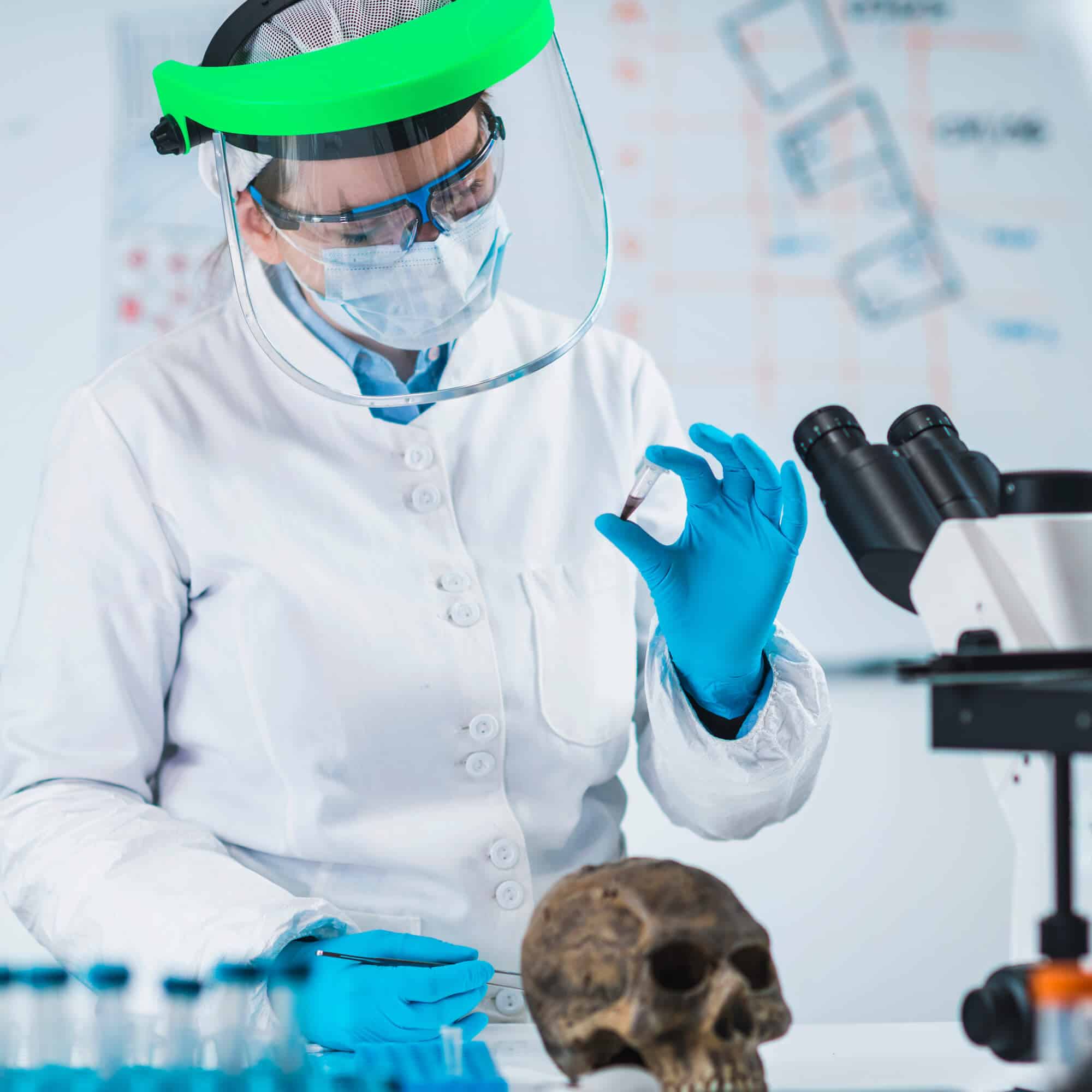The significant increase in recent decades in the study of ancient DNA, which is derived from human remains, as well as its influence on archeology and other fields, created a need for the development of dedicated ethical standards to guide those engaged in the craft

For the first time in the world, an international team of experts with the participation of a researcher from Tel Aviv University drafted the ethical code for ancient DNA research. The researchers explained that the significant increase in recent decades in the study of ancient DNA, extracted from human remains, as well as its impact on archeology and other fields, created a need for the development of dedicated ethical standards to guide those engaged in the craft.
64 international researchers from different disciplines - archeology, anthropology, curation, archaeo-genetics and paleo-genetics - from 31 different countries participated in the formulation of the ethical code. The group of researchers also included the anthropologist and paleogeneticist Dr. Vivian Salon from the Faculty of Medicine and the Dan David Center for the Study of Human History at Tel Aviv University. The ethical code was recently published in the prestigious journal Nature.
Dr. Salon explains that ancient DNA research has unique aspects that raise the need for ethical regulation - firstly, examining ancestry in the past can have social and political consequences today, and secondly, the fact that ancient DNA work deals with people who lived in the past who should be respected. Most of the sources dealing with ancient DNA ethics have been written so far from the perspective of researchers dealing with the effects on the Native American community, which suffered from a difficult history of colonial exploitation by the descendants of Europeans. Based on this, a number of articles were written suggesting that decisions regarding the future directions of research on this subject should be determined by a single council with the descendants of the indigenous community and that permission should be sought from the community's breadwinners for the purpose of the research on its various stages. The proposal was to extend this approach not only to the USA.
According to her, this aspect may sometimes give rise to difficult research dilemmas since not all populations in the past have descendants today, and even if there are, not every current community that is a descendant of an ancient community feels any connection to its ancient ancestors.
Alongside this, the ethical code includes, among other things, compliance with all regulations and regulations applicable in the places where the research is conducted, and where the human remains were found, including minimizing as much as possible the damage caused by the research to the human remains. The researchers also agreed that cooperation with other stakeholders in the research, including descendants of local communities and parallel researchers in different fields, should be strived for, and their point of view should be respected.
Dr. Salon says: "The guidelines we offer encompass all the different parts of the research, starting from the planning stage, through the sampling itself and the sharing of the data and results, to communication with our colleagues engaged in the study of ancient human remains and with the general public. This is a world-wide project that was born in a virtual meeting about a year ago, in which there was a broad consensus on the need for ethical regulation of the field, which is only growing and developing, and the product is here before us. In the hope that it will have a significant impact, the article is currently being translated into dozens of languages - including Hebrew."
Dr. Salon adds: "As a reminder, researchers from the Shmunis Institute of Anthropology and the Dan David Center for the Study of Human History recently led the groundbreaking research that discovered the ancient man in the area of the Nesher Ramla factory. Thanks to the infrastructure laid here for the expansion of interdisciplinary cooperation in the world of ancient DNA research, we will be able to maximize the scientific achievements on this subject, in Israel and around the world."
More of the topic in Hayadan:
- Dr. Vivian Salon - winner of the Rosalind Franklin Award for Young Researchers
- Scientists were able to reconstruct and sequence an ancient genome with the help of DNA collected from five different Canaanites who lived in today's Lebanon about 4,000 years ago
- DNA tests made it possible to discover a mixture of Neanderthals and Denisovans
- DNA tests on 6500-year-old skeletons in a burial cave in Paki'in reveal their Mesopotamian origin
